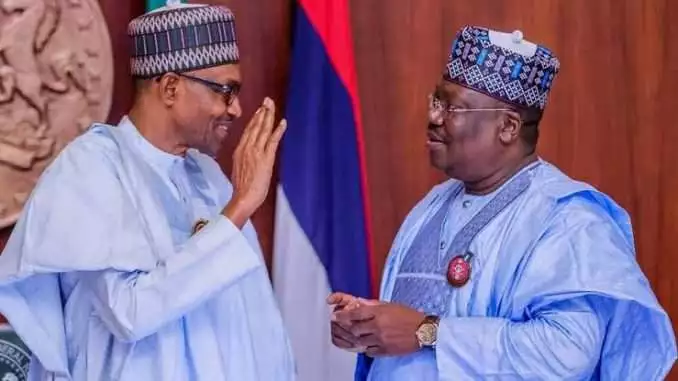As President Muhammadu Buhari and the National Assembly continue to bicker over the amended Electoral Act, it has been revealed that the president has yet to sign more than 100 bills sent to him for his assent in the last three years.
Reports, according to a National Newspaper, The Nation, indicate that Buhari has only assented to 19 out of the 131 bills passed to him by the lawmakers, despite the perceived good working relationship between the Legislature and the Executive.
Senate President, Ahmad Lawan had, recently, claimed that a better synergy exists between the Ninth National Assembly and the Presidency.
Th Senate President, who is also the Chairman of the National Assembly, had shocked also many Nigerians when he said in June last year, that the Assembly will continue to approve loans for the administration, despite Nigerians’ outbursts to huge borrowing by the Buhari administration since it swept to power in 2015.
Ahmed’s assertion seems not to fly, considering that Buhari has signed less than 20 per cent of the Bills sent to him by the National Assembly, the latest being the amended Electoral Act which the president has refused to sign, close to two weeks after the National Assembly sent it to him.
Presidency sources told The Source that Buhari’s aides have failed to agree on the Bill, which, when signed, grants voting right to statutory delegates to vote during political primaries.
The implication of the President’s action, keen watchers of the nation’s politics insist, is that Buhari, Vice President Yemi Osinbajo, Senate President, Speaker of the House of Representatives, members of the National and state assemblies, amongst other, will not be able to vote at the ongoing political party primaries.
According to the report, the Senate has introduced 976 bills on the floor of the Senate in the last three years, 27 sponsored by the executive while others were Member’s Bills.
According to orders 76 (a, b and c) of the Senate Standing Orders 2015 (as amended), there are three classes of Bills namely: Executive Bills, Member’s Bills and Private Bills.
Apart from 2020, 2021 and 2022 Appropriation Bills, other Bills sponsored by the Executive include the Finance Bill 2019 (Nigeria Tax and Fiscal Law) introduced on November 5, 2019 and passed on November 21, 2019.
Others are the Nigerian Meteorological Agency Act 2003 (Repeal and Re-enactment) Bill 2019, Nigerian College of Aviation Technology Act Cap N96 LFN 2004 (Repeal and Re-enactment) Bill 2019, Nigerian Airspace Management Agency Act Cap N90 LFN 2004 (Repeal and Re-enactment) Bill 2019, Civil Aviation Act 2006 (Repeal and Re-enactment) Bill 2019, Federal Airports Authority Act Cap F5 LFN 2004 (Repeal and Re-enactment) Bill 2019, and Nigeria Safety Investigation Bureau (Est. etc) Bill 2019, all of which have been passed.
The Executive also sponsored the Companies and Allied Matters Act, Cap C20 LFN 2004 (Repeal and Re-enactment) Bill 2019, Finance Act (Amendment) Bill 2020, Petroleum Industry Bill 2020, which was introduced on September 30, 2020, and passed on July 1, 2021, Proceed of Crime Bill 2020, Harmonised Retirement Age for Teachers in Nigeria Bill 2021, Copyright Act Cap C28 LFN 2004 (Amendment) Bill 2021 and the National Metallurgical Training Institute, Onitsha (Est) Bill, 2021.
Other Executive Bills are the Explosive Act (Repeal and Re-enactment) Bill 2021 and the Control of Small Arms and Light Weapons Bill 2021.
Prominent among Members’ Bills that have been passed by the Senate are the National Rice Development Council Bill 2019, National Health Insurance Commission Bill 2019 and Mental Health and Substance Abuse Bill 2019, Sexual Harassment Bill 2019, Public Procurement Act 2007 (Amendment) Bill 2019, and Public Procurement Act 2007 (Amendment) Bill 2019.
Others include Older Persons (Rights and Privileges) Bill 2019, Teaching Hospitals Development Fund (Establishment, etc) Bill 2019, Sickle Cell Anaemia (Prevention and Management) Bill 2019, National Food Reserve Agency (Est, etc) Bill 2019, Electoral Offences Commission (Est, etc) Bill 2019, and Prohibition of Discrimination Between First Degrees and Higher National Diplomas Bill 2020.
Discover more from The Source
Subscribe to get the latest posts sent to your email.








